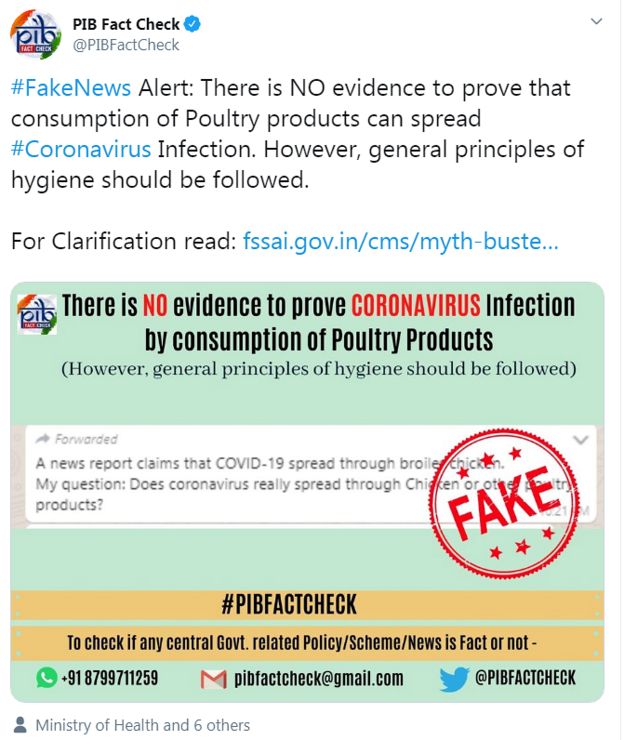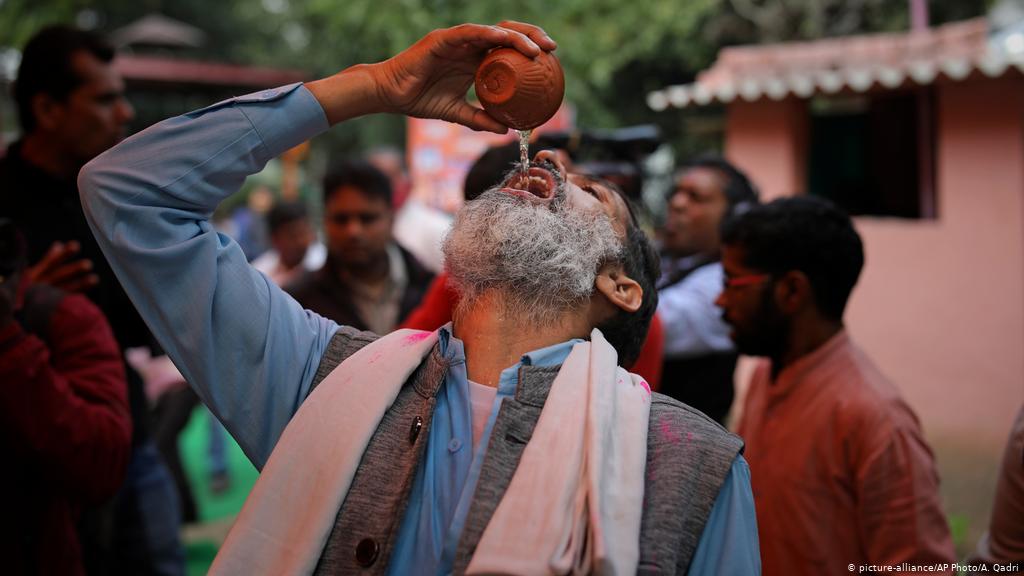India has had relatively few confirmed cases of coronavirus – but there’s been plenty of misleading advice on how to tackle it.
BBC News been fact-checking some of the most prominent examples.
Cow urine and dung
There is a long tradition in India of promoting cow urine and dung as traditional remedies for various diseases.
And an MP from the ruling Bharatiya Janata Party (BJP), Suman Haripriya, has suggested they could be used against the coronavirus.
FacebookCow dung has many benefits. I think it can kill the coronavirus. Cow urine can also be useful.Suman Haripriya
BJP assembly member
There have been previous studies into the potential anti-bacterial properties of cow urine.
And a Hindu nationalist group has held a cow-urine drinking event in the capital, Delhi, to promote its use for tackling the virus.
But Dr Shailendra Saxena, of the Indian Virological Society, told BBC News: “There is no medical evidence to show that cow urine has anti-viral characteristics.
“Moreover, using cow-dung could prove counter-productive as bovine faecal matter could contain a coronavirus which might replicate in humans.”
Alcohol-free hand sanitiser

As well as cow-dung soap, Cowpathy has been selling alcohol-free hand sanitiser with “distilled cow urine obtained from indigenous cows” online since 2018.
Currently out of stock, the product page says: “Due to high demand, we are currently limiting the purchase quantity per customer for this product to maximize access for our customers.”
Meanwhile, Ramdev, a yoga guru on a popular Hindi news channel, has suggested making herbal hand sanitisers at home.
He also said consuming a concoction of ayurvedic herb giloy, turmeric and basil leaves could help prevent coronavirus.
But the World Health Organization and the US Centers for Disease Control and Prevention (CDC) say it is important to use alcohol-based hand sanitisers.
And Prof Sally Bloomfield, at the London School of Hygiene and Tropical Medicine, says any homemade hand sanitiser will be ineffective as even vodka contains only 40% alcohol.
Vegetarianism
Last week, Anil Vij, the Health Minister of Haryana state, in northern India, made an appeal for people not to eat meat.
“Be vegetarian,” he tweeted.
“Do not create viruses like coronavirus, which pose a danger to humanity, by having [meat of] different kinds of animals.”
A Hindu nationalist group, meanwhile, claimed the coronavirus had come to punish meat-eaters.

But after the ministry that oversees livestock production said it had led to a fall in the sales of eggs and chicken, the Indian government’s fact-checking service posted a rebuttal of the claim.
And government minister Giriraj Singh said the Indian food regulator had found no evidence for it.
Getty ImagesCoronavirus is not spread by eating fish, chicken, and eggs. Eggs are your important source of protein apart from chicken and fish so eat it without any fear.Giriraj Singh
Indian Union Minister
‘Anti-coronavirus’ mattress
The coronavirus pandemic has also led some businesses to sell products they claim can fight the virus.
A 15,000-rupee (£165) “anti-coronavirus” mattress was as advertised virus-resistant, for example.
Arihant Mattresses managing director Amar Parekh told BBC News: “It is anti-fungal, anti-allergic, dustproof and waterproof, so nothing can go inside it.”
But the advertisement had now been removed
“I do not want to cause harm to anyone,” he said.
“We did not do it after there was a backlash.”
Source: BBC



















































